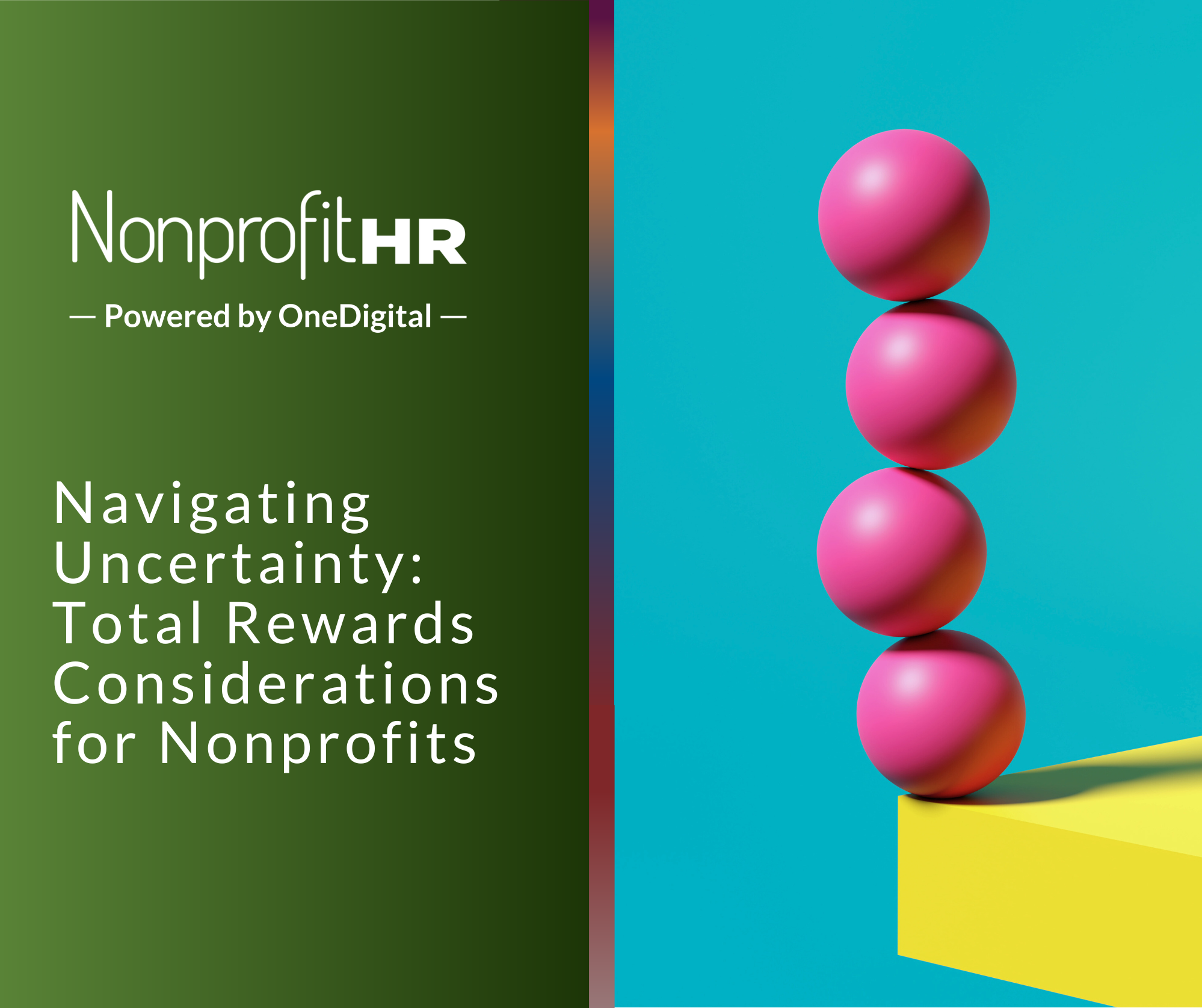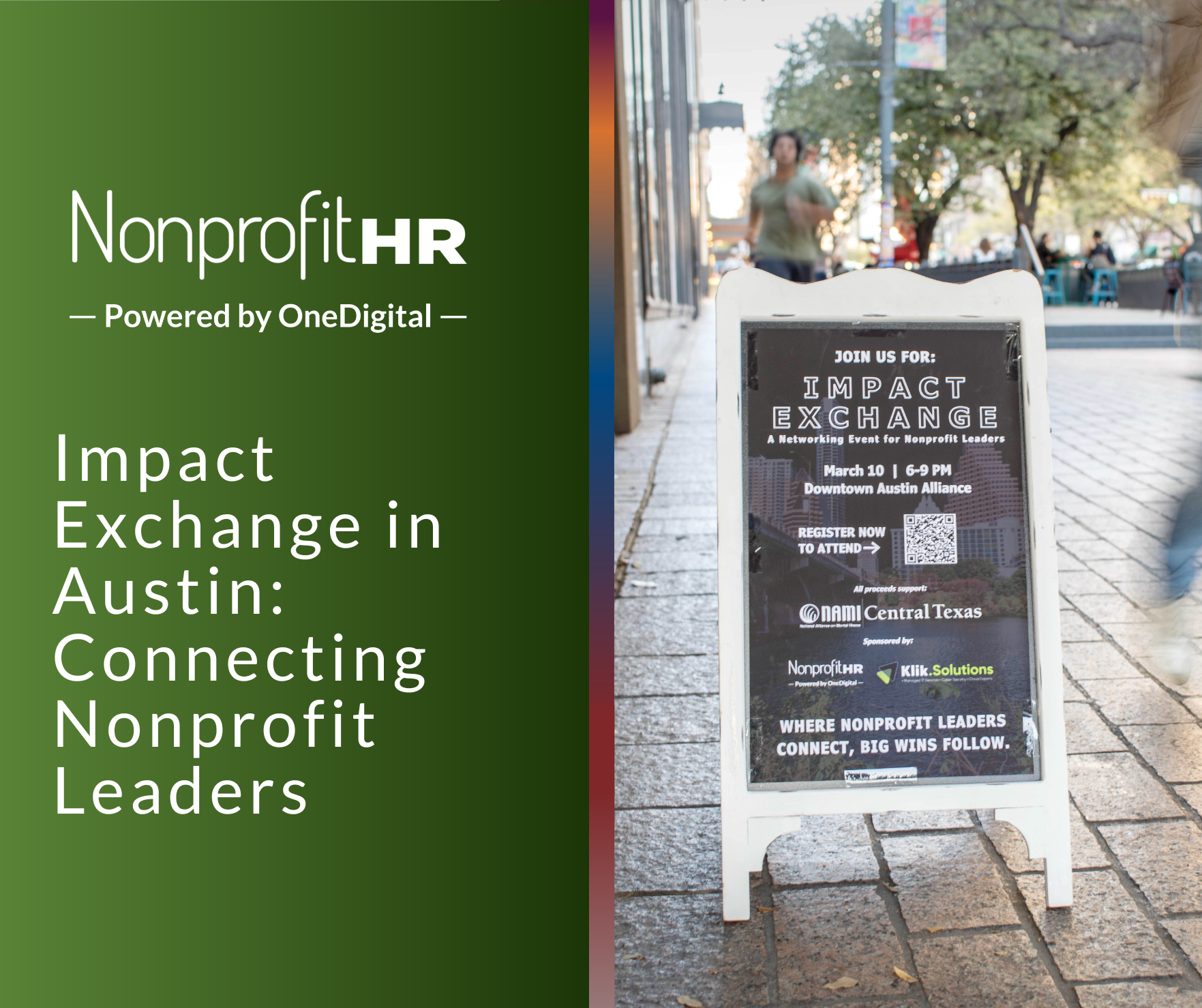WTOP: 5 ways nonprofits can…
We are excited to present a recap of this webinar presented by Shelbie Webster, Senior Consultant, Strategy & Advisory, and Suana Watson, Consultant, Strategy & Advisory. This is part 1 in a 3-part series.
HR assessments reveal critical insights into an organization’s strategic and operational capacity, capability, priority alignment and program effectiveness. They address essential aspects such as system performance, efficiency, compliance and organizational readiness for current and future needs. By identifying areas for improvement, HR assessments provide opportunities to optimize HR functions.
Distinguishing HR Audit from HR Assessment
Often, people use the terms HR audit and HR assessment interchangeably, assuming they are the same. However, they serve distinct purposes and offer different levels of insight. An HR audit evaluates a company’s HR practices, policies and procedures to identify opportunities for improvement, increase efficiency and ensure compliance with evolving employment law. HR audits zoom in with laser focus, systematically dissecting specific areas of opportunity.
HR assessments, on the other hand, provide holistic insights into strategic and operational functions, including talent acquisition, learning and development (L&D), Health Reimbursement Arrangements (HRAs), total rewards (compensation and benefits), policies, procedures, compliance, recordkeeping, culture and engagement. While the holistic nature of HR assessments is essential in capturing the big picture, their true power lies in their rigorous systematic approach to collecting, analyzing and objectively interpreting data, resulting in actionable recommendations and long-term improvement.
Exploring the HR Assessment Process
As we delve into the HR assessment process, it is imperative to acknowledge its multifaceted approach that examines elements vital to organizational success. HR assessments uncover the essential elements of a successful HR function by scrutinizing compliance, equity, program quality, capacity and strategic congruence.
Ensuring Compliance: In 2023 alone, several states adopted new laws governing minimum wage, pay transparency, drug legalization and criminal justice reform. HR compliance concerns arise in the context of hiring, termination, employee classification, workplace safety and leave of absence. HR assessments ensure organizations identify and mitigate compliance risks. Compliance is table stakes, but it takes a holistic approach that considers all aspects of HR to truly meet the needs of an organization.
Enhancing Equity and Consistency: Our workforces are more diverse than ever. Creating equitable, consistent HR policies and procedures that enhance employee morale and performance results in inclusivity, fairness and productivity. Employees feel valued and respected when policies and practices are equitable and consistent, improving employee morale and performance. On the other hand, if policies and procedures are viewed as unfair or inconsistent, employees may feel that the organization is biased or promoting favoritism — the perfect storm for a challenging work environment.
Evaluating HR Program Quality: Inventorying and assessing HR program quality is vital to align with organizational needs. Covering the entire spectrum of HR functions and their impact on the organization lets you pinpoint areas requiring program improvements or changes. HR assessments provide organizations with critical insights into their ability to attract, engage and retain top talent; develop employee core competencies; and create an inclusive and supportive workplace. Nonprofit and association leaders can use these discoveries to develop and implement strategies that improve organizational performance, employee well-being and social impact.
Assessing HR Function Capacity and Capability: HR assessments let you look under the hood of your HR function, revealing its strengths and weaknesses. This data empowers you to develop training, optimize staffing levels and implement staff development strategies. HR assessments are catalysts for transformation. Investing in an HR assessment is an investment in future-proofing your nonprofit.
Integrating with HR Strategically: The HR assessment is a strategic tool to understand HR abilities, identify opportunities for improvement and develop a roadmap o address people-centric challenges. It gauges the effectiveness of HR programs in four core areas: talent acquisition, L&D, culture and engagement. HR assessments empower organizations to be competitive in building high-performing and resilient workforces, ready to meet the challenges of tomorrow.
Aligning with Organizational Mission: Getting this part right is essential. Misalignment can hinder growth, as seen when an organization focuses on everything but attracting, recruiting and retaining talent during periods of growth. Assessments promote a shared understanding of the organization’s goals and objectives and provide a clear framework for syncing HR initiatives with the mission.
Did you know that, according to Nonprofit HR’s 2023 Talent Management Priorities Survey Results, many nonprofits and associations are focused on the employee experience and outcomes relative to employee morale, productivity and retention — all of which affect organizational outcomes?
- 93% of organizations are prioritizing culture and engagement in 2023.
- 66% of organizations are prioritizing total rewards (compensation and benefits).
- 79% of organizations are prioritizing learning.
Gallup’s State of the Global Workplace: 2023 Report shows that only 32% of full- and part-time employees are actively engaged, emphasizing the importance of creating engaged cultures and environments. Your HR assessment can help prioritize this target.
When to Conduct an HR Assessment
Don’t wait for HR issues to sneak up on you! Be proactive and embrace the advantages of proactively conducting HR assessments. Think of them as growth check-ups, especially when you’re experiencing rapid expansion or simply want to ensure your HR function is ready for growth/development. Let’s explore several drivers for conducting an HR assessment:
Leadership Change: Transitions in leadership present opportune moments to assess HR effectiveness and identify areas for improvement. By stepping back and evaluating the HR function with fresh eyes, leaders can gain insights into the effectiveness of their HR strategy, identify and prioritize opportunities for change and develop a blueprint for the next several months to the coming year.
External pressures: Economic changes, a softening market in recent years, increased competition, and new and emerging technologies (such as AI) impact your ability to achieve your mission and reach. HR assessments provide understanding to help us navigate external pressures and their impact on cost effectiveness.
Mergers and acquisitions: HR assessments help organizations overcome the strategic and structural challenges of significant change, including facilitating the setup of the new organization, identifying best practices, and guiding the integration of methods, procedures, programs and strategies.
Effectiveness and Efficiency: HR assessments measure program effectiveness, evaluate the user-friendliness of HR interfaces, benchmark the efficiency of priorities and determine if critical information is readily available. This point is crucial for organizational success, as it helps ensure resources are allocated efficiently and effectively toward achieving organizational goals.
Learning and Development: L&D programs are vital in empowering employees with the knowledge and skills necessary to drive organizational performance, adapt to changing needs and achieve missions. HR assessments evaluate L&D program effectiveness, alignment and value, identifying opportunities for improvement and ensuring equilibrium with the organization’s overall strategy.
Regulatory Climate: Did you know that, on average, the Department of Labor administers over 180 federal employment laws that govern all aspects of employee relationships? According to the National Conference of State Legislatures, the United States has over 2,000 state and local employment laws. Some states, like California, New York and Massachusetts, have enacted more extensive employment laws than others. As employment law continues to evolve, HR assessments flag potential concerns and mitigate liability.
Growth and Shifting Priorities: Expansion and the changing priorities that come with it pose exciting challenges for organizations. But ask yourself: Is my organizational structure agile enough? Do I have the processes and talent to acquire and engage top talent? How will I promote and develop staff to meet the organization’s needs? Do I have the requisite in-house skills to meet my organization’s needs moving forward? HR assessments address each of these concerns.
Conclusion
HR assessments uncover critical insights into strategic competency, operational effectiveness and alignment with mission. They address compliance, equity, HR program quality, capacity and strategic agreement. Nonprofit HR proposes a deep dive into HR systems that covers all functional aspects of HR.
Ready to take proactive steps to ensure HR readiness and effectiveness? If you’re reading this blog, you might be a nonprofit or association interested in conducting an assessment. Nonprofit HR’s expert, dedicated Strategy & Advisory consultants are here to optimize your HR function and drive organizational advancement. Schedule a mini consult today!
Contributing Authors
|
Shelbie Webster
Senior Consultant,
Strategy & Advisory
|
Suana Watson
Consultant,
Strategy & Advisory
|































